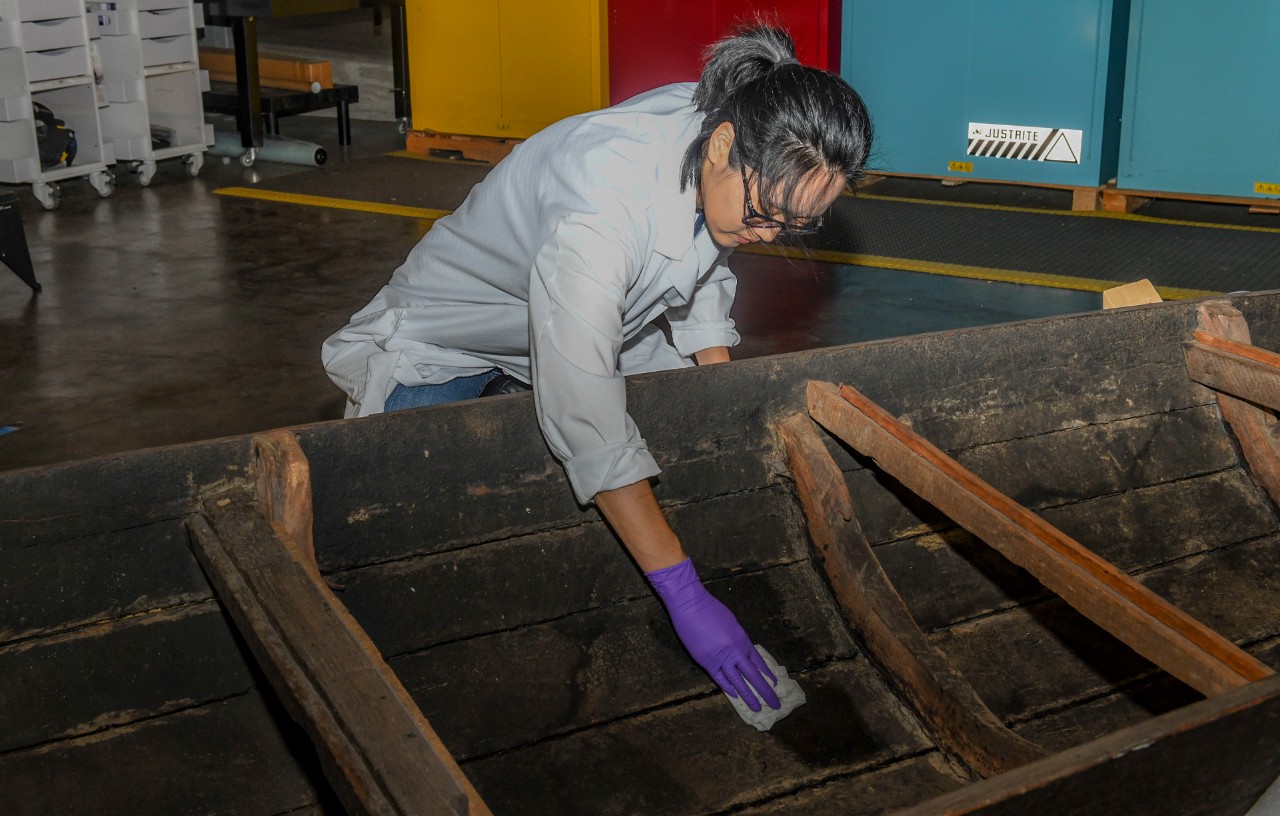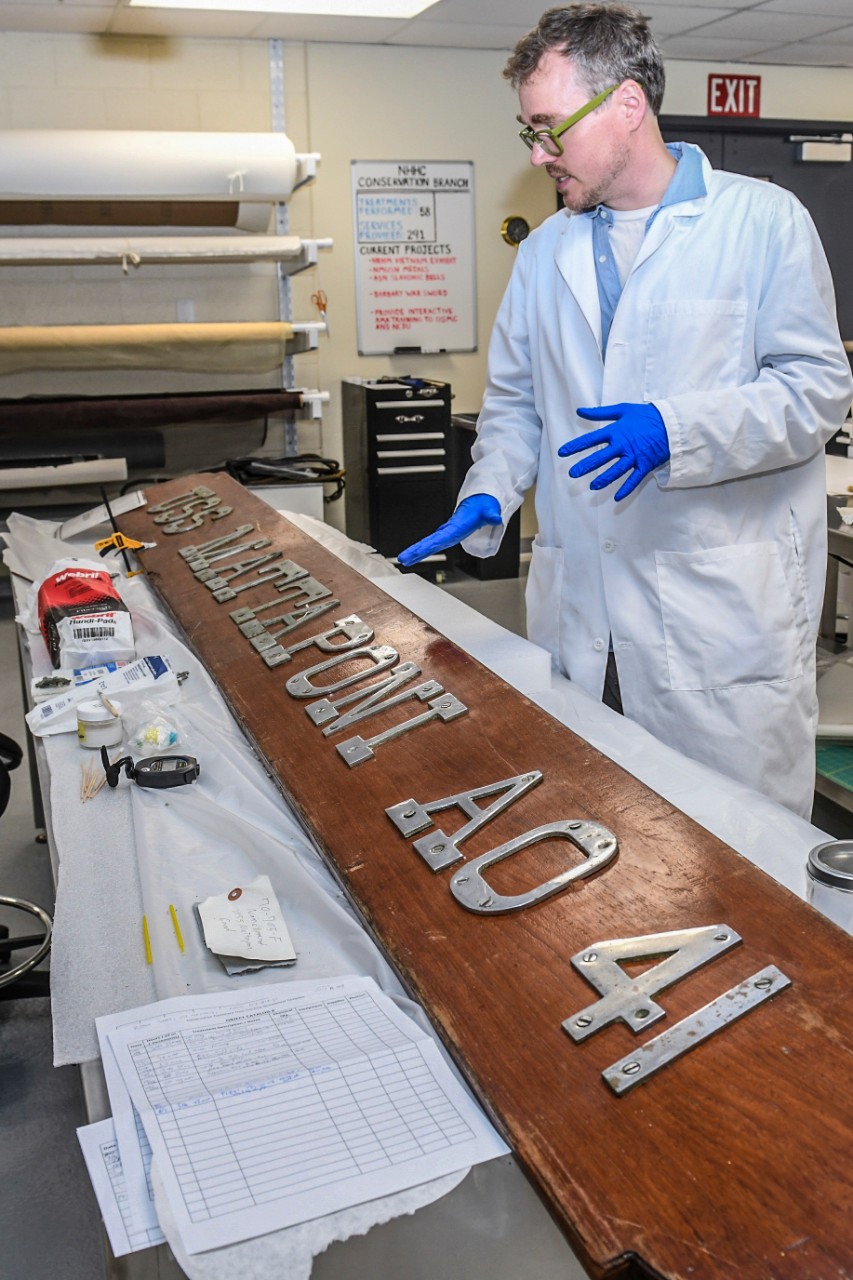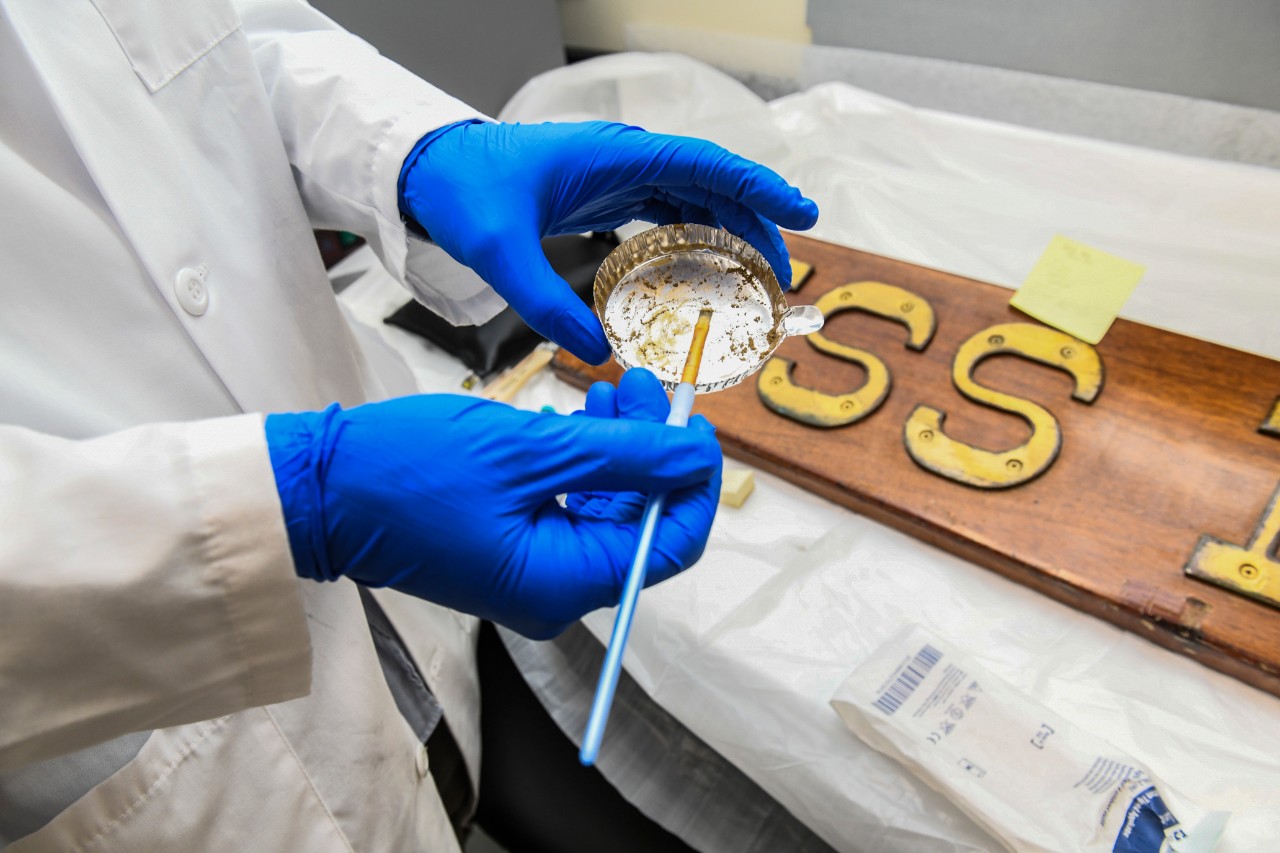By Mass Communication Specialist 2nd Class (SW/AW) Mutis A. Capizzi, Naval History and Heritage Command
The new exhibit, titled “The Ten-Thousand Day War at Sea: The U.S. Navy in Vietnam,” will showcase the United States Navy’s involvement in the Vietnam War from 1950 to 1975. NHHC's Curator Branch provided never before seen artifacts from the collection in support of the HRNM exhibit. The centerpiece is a 25-foot long Vietnamese watercraft called a sampan; river patrol forces captured it in 1968 while it was transporting ammunition to the Viet Cong near Saigon.
Conservation Branch Head David Krop stated that the sampan has been a part of the NHHC collection for decades, and that the conservation process to preserve an artifact like this is complex.
“From a conservation standpoint, before we started anything, we wanted to document everything as it is so we knew what condition it was in,” said Krop. “One of our primary concerns was the five decades of grime, dirt, dust and debris accumulated on the sampan.”

Krop added that another challenge faced by conservators is the material used to make the sampan watertight. Over time, the planks started to separate, resulting in the packing material falling out. Krop and his team had to figure out how to clean and stabilize the sampan without causing any further deterioration, particularly during transport to Norfolk.
This is vital information to have for the historical record as it helps us determine how to treat these artifacts safely,” said Krop. “If we misidentify material and try to apply a certain chemical, we could potentially destroy that material. We cannot make good decisions on conservation processes if we do know what it is we are working with or trying to do. One of the cleaning agents is distilled water in localized areas because it removes the grime without stripping any of the natural oils or surface of the sampan planks.”

Other pieces that are also in the last stages of the conservation process include two paddles from the sampan, along with name plaques for the USS Mattaponi (AO-41) and USS Enterprise (CVN 65). Customized cleaning and preservation agents had to be created to safely halt these artifacts from deteriorating without changing the artifact itself from its original state. Once complete, the Conservation Branch will work with the Curator Branch to ensure safe packaging for shipment from the Collection Management Facility to the museum in Norfolk. Some of the pieces are so fragile that curators themselves will have to transport them. Antonia Deetz-Rock is one of the curators tasked with the transfer.
“There is a lot of fine tuning with scheduling, sequencing of what goes down in what truck; everything is looked at with concern for the artifact,” said Deetz-Rock. “Our number one responsibility is to be the best caretaker of these artifacts as they are in transit.”

The sampan and other conserved artifacts will be open for public viewing on October 9, 2019. During the three-year exhibit, The Hampton Roads Naval Museum aims to educate visitors about the pivotal role played by the US Navy in the Vietnam War.
John Pentangelo, Director of the Hampton Roads Naval Museum, hopes the never before seen artifacts, like the sampan, will appeal to Sailors, veterans and the public. “Using the U.S. Navy's rich historical collections, multi-media presentations, and interactive components, the exhibit will encourage family learning, thoughtful discourse, and recognition for the sacrifices of over 1.8 million Sailors who served during the conflict,” said Pentangelo. "Visitors will view this sampan, a witness to U.S. Navy combat on the rivers of the Mekong Delta, while also listening to veterans describe their experiences with these boats using oral history touch screens in the exhibit."
The Naval History and Heritage Command, located at the Washington Navy Yard, is responsible for the preservation, analysis, and dissemination of U.S. naval history and heritage. It provides the knowledge foundation for the Navy by maintaining historically relevant resources and products that reflect the Navy's unique and enduring contributions through our nation's history, and supports the fleet by assisting with and delivering professional research, analysis, and interpretive services. NHHC is composed of many activities including the Navy Department Library, the Navy Operational Archives, the Navy art and artifact collections, underwater archeology, Navy histories, nine museums, USS Constitution repair facility and the historic ship Nautilus.
For more news from Naval History and Heritage Command, visit www.history.navy.mil.


